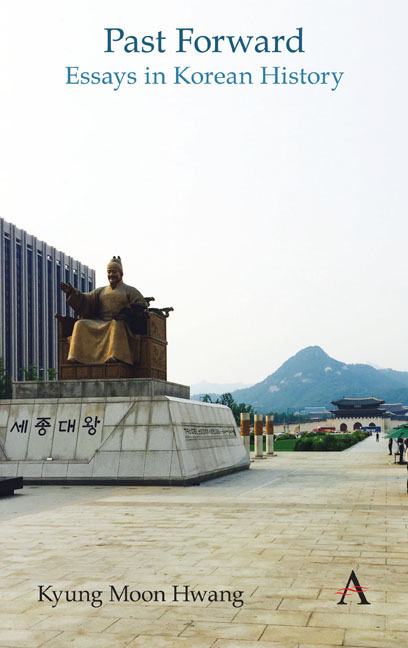Book contents
- Frontmatter
- Contents
- List of Figures
- Foreword
- Chronologies of Korean History
- Themes
- Acknowledgments
- Note on Romanization and Spelling
- Part I Circulating History
- Part II Durable Traditions
- Part III Ancient Remains
- Part IV Dynastic Depths
- Part V Modern Origins
- Part VI Challenges of Nationhood
- Part VII History Makers
- 41 Demythologizing King Sejong the Great
- 42 Modern Lady Shin Saimdang
- 43 Five Potential National Heroes
- 44 A Portrait of Great Painters
- 45 Four Young Men from 1884
- 46 Na Hye-seok
- 47 Hyundai Motors and Chung Ju-yung
- 48 Yun Isang and the East Berlin Case
- 49 Ri Young-hee, Iconoclast for Democracy
- 50 Kim Young Sam's Broad Historical Appeal
- 51 Kim Dae Jung's Historic Election
- Part VIII External Presences
- Part IX Trials of Modernization
- Part X Gripped by the Past
- Index
49 - Ri Young-hee, Iconoclast for Democracy
from Part VII - History Makers
- Frontmatter
- Contents
- List of Figures
- Foreword
- Chronologies of Korean History
- Themes
- Acknowledgments
- Note on Romanization and Spelling
- Part I Circulating History
- Part II Durable Traditions
- Part III Ancient Remains
- Part IV Dynastic Depths
- Part V Modern Origins
- Part VI Challenges of Nationhood
- Part VII History Makers
- 41 Demythologizing King Sejong the Great
- 42 Modern Lady Shin Saimdang
- 43 Five Potential National Heroes
- 44 A Portrait of Great Painters
- 45 Four Young Men from 1884
- 46 Na Hye-seok
- 47 Hyundai Motors and Chung Ju-yung
- 48 Yun Isang and the East Berlin Case
- 49 Ri Young-hee, Iconoclast for Democracy
- 50 Kim Young Sam's Broad Historical Appeal
- 51 Kim Dae Jung's Historic Election
- Part VIII External Presences
- Part IX Trials of Modernization
- Part X Gripped by the Past
- Index
Summary
The journalist Ri Young-hee (Yi Yeong-hui), one of the most influential intellectuals of recent times, helped shape the ideals of a democratic, and democratizing, South Korea. Even in the darkest period of the military dictatorship in the 1970s, Ri insisted on exposing the hidden causes of social inequality and national division, and on pursuing the goals of government accountability, press freedom and historical justice.
Ri Young-hee was born in 1929 in what is now North Korea, close to the Chinese border, and attended school during the wartime mobilization in the early 1940s under Japanese colonial rule. In his late teens and early 20s, after having fled the North, he witnessed the turmoil of the immediate postliberation period (1945–1950) under the American occupation and the early South Korean state. Following the outbreak of the Korean War in 1950, Ri served as a low-ranking officer, and in this position, he witnessed the horrific violence of the war, but also the brutality, corruption and abuses of the South Korean military. He found that many in the commanding ranks of the army were graduates of the Japanese imperial forces that had trampled over Asia during World War II. By contrast, at the bottom end of the ROK military, he found masses of mostly poor, undereducated and untrained young conscripts who were being used as cannon fodder. In the meantime, Ri's teenaged brother died of a ruptured appendix while caring for their parents in his absence. Ri later recalled that this mix of savagery and horror, as well as his guilt over his brother's death, was the turning point in his life and perspective. After the armistice in 1953, Ri had to remain in the army and worked as an English language interpreter, a post that allowed him to observe closely the workings of his country's relationship with the United States. Upon his discharge in 1956, he successfully applied for a reporter's position with the Hapdong Tongsin wire service, through which he took his first trip to the United States at the end of the 1950s to study journalism at Northwestern University.
- Type
- Chapter
- Information
- Past ForwardEssays in Korean History, pp. 145 - 147Publisher: Anthem PressPrint publication year: 2019

